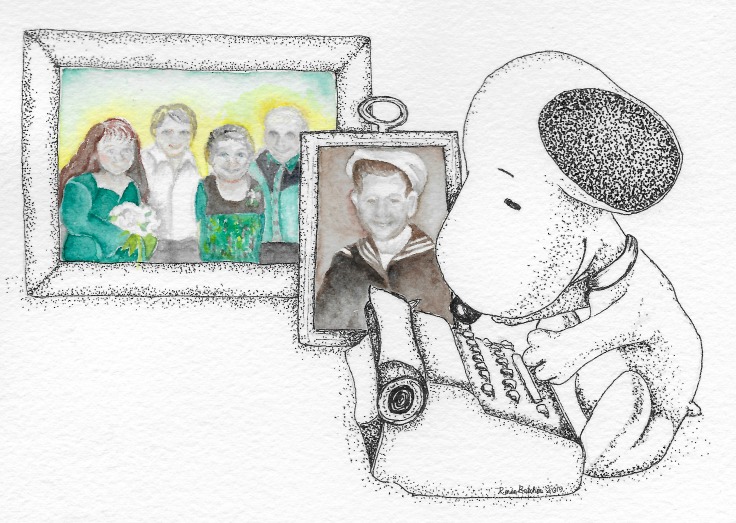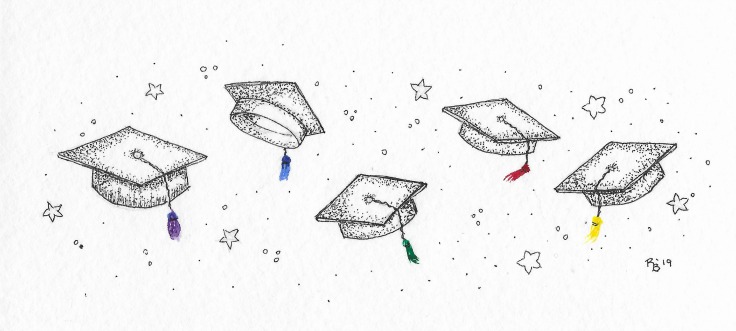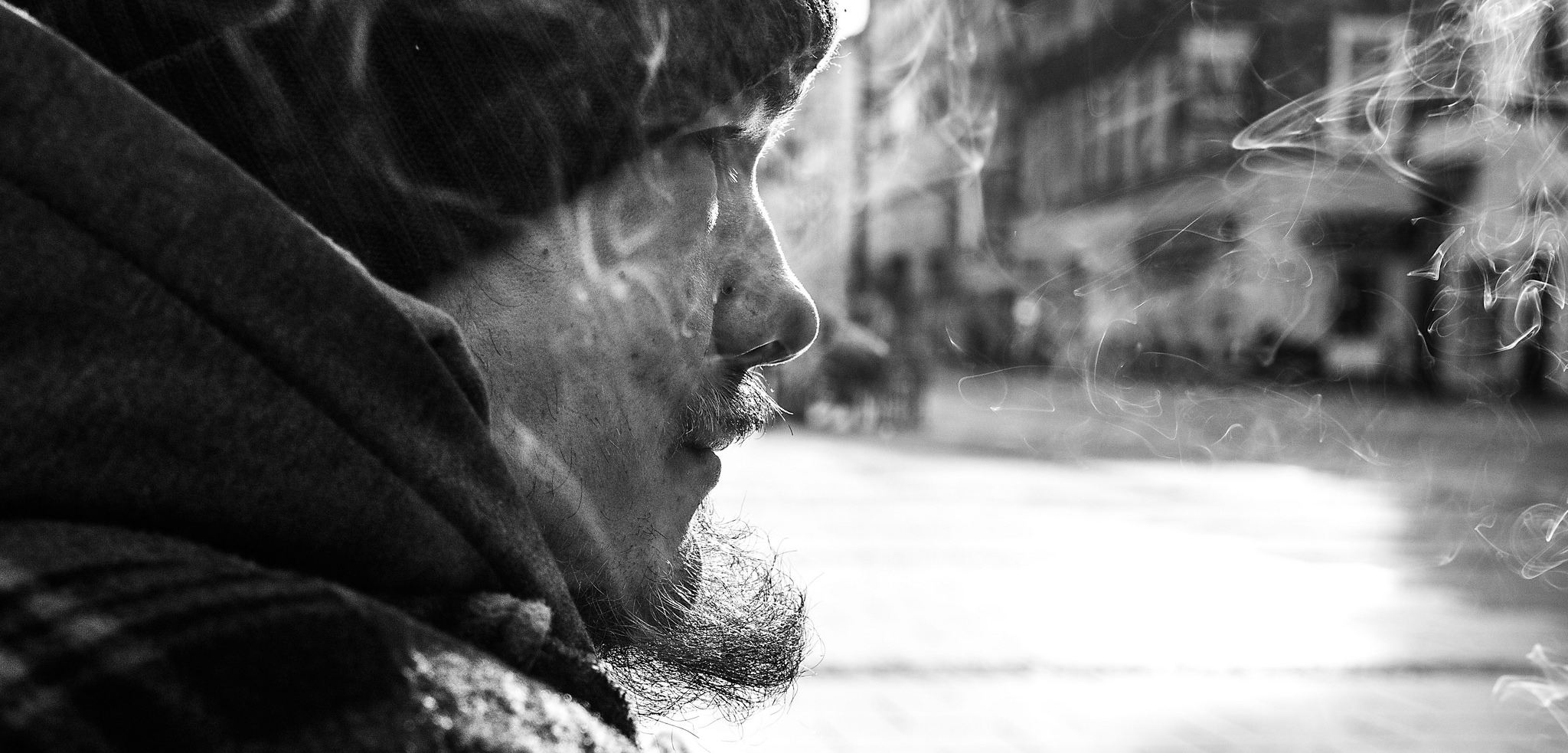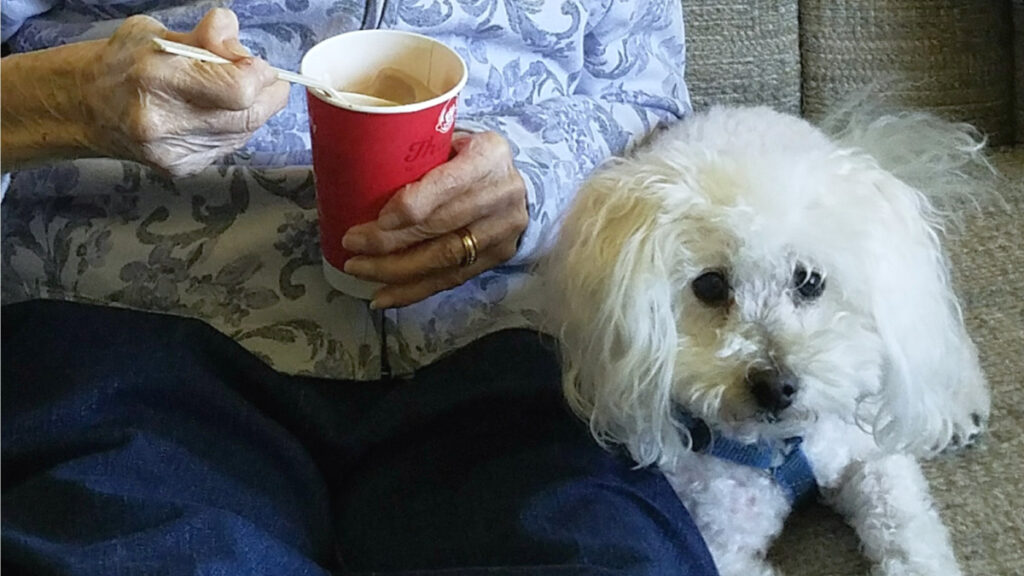![Family Mugs [Illustration by Renee Butcher]](https://reneebutcher.com/wp-content/uploads/2019/05/mugs-4.1.jpg)
My husband, Rick, keeps telling me we have too many mugs – that they are taking up too much space on our shelves, and I need to get rid of some of them. But which ones?
How about this one – my Mama Bear mug? It’s the companion to his Papa Bear mug. Every time I see them sitting on the shelf, I think about the year we really started to feel like a family. I can’t give that one up. It took so many years to get it.
Or how about my big green Tinkerbell mug? We got that the year we took the kids to Disneyland – our first real “family” trip together. It’s a big, two-handed mug that holds nearly twice as much as Mama Bear. I reserve Tink for my Sunday Cocoa and fill her to the brim.
How about this one? My camp sister, Dottie, has one just like it: I gave it to her for her birthday a few years back. I love the image; yellow stars peek from a black night sky, haloing a galaxy of raucous, Rubenesque women whooping around a campfire, sparks rising to meet the stars. Whenever I wrap my hands around their warm, gently sloping curves, I am lost in a thousand memories of smoky, crackling fires, campfire singing and soft guitars.
See this one with the unicorn? I think it’s the oldest in the cupboard. It sat on my desk all through college, where it held my pencils, pens, roach clip, scissors. When I hold it, I remember moving into Mehling Hall freshman year, carefully placing it on my desk beside Rick’s picture. I remember when I put his picture away.
And this one with the cowboy boots, sitting on the windowsill? If you look closely, you’ll see its broken: split right down the middle. My second daughter, Gracie, sent that one to us from Wyoming, the year she spent teaching and volunteering and waiting to go to Brazil. It was broken when it arrived, so I superglued it and set it up there to hold my basting and baking brushes. It’s been there ever since.
Maybe I could part with the volunteer mug Rick got for helping out with Emily’s Girl Scout troop. Or the one we bought on our first Valentines weekend at Hood River. No. No, I need to keep that one. You never know when a moment will change the course of your life, or the ambitions of your heart will be inspired.
Which ones should I keep? Which do I let go?
The funny thing is, most of the mugs I love aren’t that comfortable to hold. They’re not shaped exactly right. Some have rough surfaces that make my fingertips feel anxious, or lips that curl in ways that make it almost impossible to the gracefully take a drink. Some have handles that were clearly designed by someone who had never before held a mug in their lives, while others are too heavy, or uneven, slumped from the heat of the kiln.
Still, I love each one. They hold my memories.
I have learned to form to their curves and find comfort in their rough spots. Even the broken one, I have found a place for.



